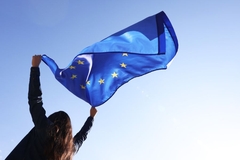EU Green Claims Directive withdrawal threat sparks political backlash and NGO warnings

The future of the EU Green Claims Directive has become unclear following a breakdown in trilogue negotiations and confusion over whether the proposal is being withdrawn. In a public midday press briefing, a European Commission (EC) spokesperson publicly stated that the Commission “intends to withdraw the Green Claims proposal,” prompting the cancellation of what would have been the final round of talks between EU institutions.
The Green Claims Directive, introduced by the EC in March 2023, seeks to crack down on greenwashing by requiring companies to provide evidence for voluntary environmental claims such as “climate neutral” or “eco-friendly.” Under the proposal, such claims must be verified by accredited third-party bodies before they can be used in marketing.
This directive is important for the personal care industry, where green marketing is widespread, and consumer expectations around sustainability are high.
Despite the press briefing, the EC later clarified that the proposal had not been formally withdrawn.
“The Commission’s position on this file will depend on the outcome of the negotiations of the co-legislators (European Parliament and Council of Ministers). The Commission remains committed to the goals and principles stated in its original proposal of the Green Claims Directive,” an EC representative tells Personal Care Insights.
Greenwashing in personal care
The EU Green Claims Directive seeks to regulate environmental labeling to address inconsistencies and mistrust. EC research shows that more than half of green claims in the EU are misleading or unsubstantiated.
“Consumer organizations have long called for new rules to tackle greenwashing, so postponing negotiations on the Green Claims Directive is worrying,” Agustín Reyna, director general at BEUC, the European Consumer Organization, tells Personal Care Insights in a statement.
.jpg) Innova Market Insights’ data suggests that 50% of global consumers are deeply concerned about greenwashing among beauty and personal care brands.Additionally, Innova Market Insights’ data suggests that 50% of global consumers are deeply concerned about greenwashing among beauty and personal care brands. Meanwhile, 63% want simpler, more transparent ecolabels on cosmetic products.
Innova Market Insights’ data suggests that 50% of global consumers are deeply concerned about greenwashing among beauty and personal care brands.Additionally, Innova Market Insights’ data suggests that 50% of global consumers are deeply concerned about greenwashing among beauty and personal care brands. Meanwhile, 63% want simpler, more transparent ecolabels on cosmetic products.
“Our research shows that consumers are not equipped to identify greenwashing, and it should not be up to them to decipher what is true or false on the market,” Reyna adds.
NGOs, including ClientEarth, Environmental Coalition on Standards (ECOS), Carbon Market Watch, and the European Environmental Bureau, have issued a joint statement, saying that “withdrawing this law now would be highly unorthodox and would go against the proper legislative process.”
Small business, big burden
The Commission’s withdrawal threat followed political pressure from the European People’s Party (EPP), which argued that including microenterprises in the directive would place an excessive administrative burden on small businesses.
Members of the European Parliament (MEPs) criticized the move as an unnecessary threat, noting that Parliament had already agreed to exempt microenterprises during previous negotiations.
Microenterprises — businesses with fewer than 10 employees and annual turnover under €2 million (US$2.35 million) — represent around 96% of companies in the EU, according to the EU’s 2022 Small Business report.
MEPs and committee chairs have strongly criticized the EC’s handling of the directive. Anna Cavazzini, chair of the Committee on Internal Market and Consumer Protection, and Antonio Decaro, chair of the Committee on Environment, Climate and Food Safety, expressed frustration over the abrupt cancellation.
“Less than three hours before the start of the final trilogue, we learned of the presidency’s unwillingness to engage in negotiations... because of the Commission’s recent announcements and the change of positions within the Council itself,” they say in a joint statement.
Cavazzini and Decaro warned that the last-minute disruption could set “a dangerous precedent” for legislative cooperation and deprive Parliament of the chance to finalize negotiations after two years of work..jpg) The EU Green Claims Directive seeks to regulate environmental labeling to address inconsistencies and mistrust.
The EU Green Claims Directive seeks to regulate environmental labeling to address inconsistencies and mistrust.
The Polish Council Presidency, which leads negotiations for the Council of the EU, has paused further talks, citing a need for clarity from the Commission. Following the cancellation, Italy also withdrew support, further complicating the situation by weakening the qualified majority required to move the directive forward.
Call for action
Consumer advocacy groups and environmental NGOs have responded to the developments with alarm. BEUC, the European Consumer Organization, has issued a letter urging the EC not to withdraw the proposal.
The letter warns that pulling the directive now would jeopardize years of legislative progress, weaken consumer trust, and undermine the EU’s role in setting global sustainability standards.
“Consumers expect policymakers to make sure that the claims and labels they see in shops and online are trustworthy. Now is the time for the EU to act to ensure both consumer confidence in the market and reward those businesses that are genuinely investing in sustainable products and services in the face of unfair competition from unscrupulous traders,” says Reyna.
In their joint statement, ClientEarth, ECOS, Carbon Market Watch, and the European Environmental Bureau argue that the directive is essential to cleaning up “the wild west of green claims” and protecting consumers and responsible businesses.
ClientEarth notes that 76% of products on the EU market carry an explicit or implicit green claim, more than half of which are misleading or inaccurate. Without clear and enforceable rules, the group argues, they warn greenwashing will persist and weaken the credibility of environmental marketing across the bloc.












